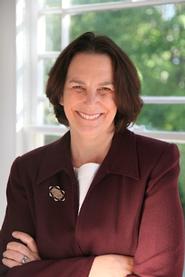
Lareau’s presentation offered brief snapshots of the research behind Unequal Childhoods. Ten years ago, she shadowed 12 very different families with 10-year-old children for three weeks at a time. Some families came from middle class backgrounds, others were working class, some were poor. She observed differences in how these different socio-economic classes interacted with their children.
Lareau was testing for a “class advantage,” which grants more opportunities to those from a wealthier background. As Lareau explained, “your life chances are structured in crucial ways by the social standing of your parents… The gap by social class exists by the time children enter school, and it widens.” In 2011, Lareau tracked down the 12 children, to see if the class advantage proved effectual.
Her results were definitive. When she interviewed the children in 2011, “the middle class kids seemed younger, livelier, were off in college…. The working class and poor kids had hopes and dreams, but were worn down.” Despite the best intentions, the working class and poor children could not escape their situation.
“Americans are so focused on meritocracy and individualism, they often forget that opportunity is not equal across class lines.”
Lareau cites two approaches to child rearing – separated along class lines — which are the main cause for this discrepancy. The first, termed, “concerted cultivation,” is used most often by middle-class parents. In this method, “the parents treat [their children] like conversation partners… they view the lives of their children as a learning experience,” she described. The other, “accomplishment of natural growth,” is used more often by working class and poor families. Parents provide just the necessities like food and shelter, and these children “are expected to thrive.” Lareau went on to describe two of her subjects to demonstrate this difference.
The first came from a middle class background—his parents both had college degrees and comfortable incomes. As a 10-year-old, he was enrolled in numerous extracurricular activities. His parents maintained a heavy hand on his schedule as he aged; “his father was managing his athletic career as his mother was managing his academics,” commented Lareau. By the time college applications came around, his parents coached him toward the best option; he was recruited to his top-choice school.
Lareau then told the story of a girl from a working-class family. The girl was left alone through much of her childhood, struggled in school and was later diagnosed with a learning disability. Her condition, however, was largely disregarded. The girl faced an unexpected pregnancy at 19 which monopolized most of her time. She never went to college. When Lareau suggested that her parents could have helped with school or with the pregnancy, she responded forcefully, “I’m old enough to make my own decisions.”
Sociology at Hamilton is a rigorous but creative program in which accomplished professors and engaged students work closely together on a broad range of topics. Students learn to conduct and assess many types of social research.
“This pattern was repeated across all working class and poor families,” said Lareau.
However, Lareau stressed that “all parents want their children to succeed, but the strategies are very different.” Working class and poor children are often more self-sufficient, but lack the opportunities that middleclass parents provide for their kids.
Lareau advocates for an understanding of different socioeconomic backgrounds. Americans are so focused on meritocracy and individualism, they often forget that opportunity is not equal across class lines. She said, “When it comes to class, people are often mute…. We need to develop a dialog of social stratification.” Her book aims to start that dialog.


